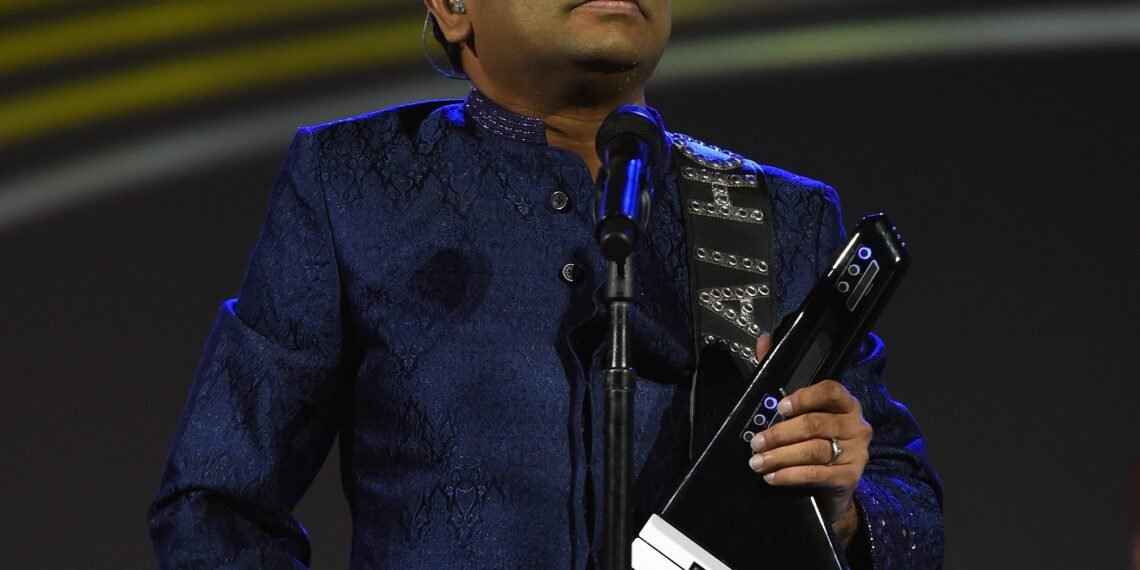The case was filed by Padma Shri awardee Faiyaz Wasifuddin Dagar, alleging the song copied elements from Shiva Stuti, a composition by his father and uncle.
BY PC Bureau
New Delhi, Sept 24 — The Delhi High Court has set aside an earlier order against music composer AR Rahman in the copyright dispute surrounding the song Veera Raja Veera from Mani Ratnam’s epic film Ponniyin Selvan 2. The case, filed by noted Dhrupad exponent and Padma Shri awardee Faiyaz Wasifuddin Dagar, alleged that Rahman’s composition copied elements from Shiva Stuti, a work popularised by the legendary Junior Dagar Brothers.
The controversy first broke out in April 2024, when a single-judge bench ruled in favour of Dagar, directing Rahman, Madras Talkies, and Sony Music to deposit ₹2 crore, restraining them from publishing or distributing the song without credit, and awarding damages and costs. The order sparked intense debate in artistic and legal circles, with many arguing over the thin line between cultural inspiration and infringement. On appeal, a Division Bench stayed parts of the order in May 2024 but upheld the deposit requirement.
READ: Curses and Calumny: How Trump Greeted the Return of a “garbage” TV Show
Delivering its judgment this week, the High Court clarified that while Rahman’s Veera Raja Veera indeed bore traces of the ancient Shiva Stuti, the single-judge had overreached by imposing credit and penalties without a full trial. The court stressed that compositions from the Dhrupad tradition form part of a centuries-old oral repertoire, and that ownership claims over such works require careful scrutiny. The question of copyright infringement, it held, could only be determined after detailed evidence and arguments in trial, not at the interim stage.
At the heart of the case lies the legacy of the Dagar family. The complainant, Wasifuddin Dagar, is the son of Ustad Nasir Faiyazuddin Dagar and nephew of Ustad Nasir Zahiruddin Dagar, who together were celebrated worldwide as the Junior Dagar Brothers. Their rendition of Shiva Stuti, a hymn to Lord Shiva, is regarded as a classic in the Dhrupad tradition and has been recorded in Europe and performed across the globe. Dagar argued that Rahman’s chart-topping film song replicated their specific arrangement without acknowledgment.
Rahman, on the other hand, maintained that Veera Raja Veera is an independent creation inspired by multiple sources, and that Shiva Stuti belongs to the public domain as part of the traditional Dhrupad repertoire. His legal team pointed out that the composer layered the hymn with orchestral arrangements and cinematic context to craft something new.
The dispute goes beyond two compositions. It underscores a larger dilemma in Indian music: how to balance the preservation of cultural legacies with creative freedom. As traditional, folk, and classical pieces increasingly find their way into modern cinema and fusion projects, questions of authorship and ownership have grown sharper. Similar controversies have also surfaced globally, where indigenous or folk works have been commercialised without clear credit.
For now, the Delhi High Court’s ruling relieves Rahman and his collaborators of immediate penalties. But the copyright battle is far from over, with the matter headed for a full trial where both sides will present detailed evidence. Whatever the outcome, the case could set a precedent for how Indian courts handle claims over adaptations of classical compositions — a verdict likely to resonate across the music industry.
Background of the Case
The Song Veera Raja Veera
- Featured in Mani Ratnam’s Ponniyin Selvan 2 (PS2), a Tamil historical epic released in April 2023.
- The composition by AR Rahman was praised for blending classical Indian influences with Western orchestration.
- It became one of the film’s most popular tracks, adding emotional weight to the Chola-era narrative.
The Dagar Legacy
- The complainant, Faiyaz Wasifuddin Dagar, is a Padma Shri awardee and one of India’s leading exponents of the Dhrupad tradition, one of the oldest surviving forms of Hindustani classical music.
- His father Nasir Faiyazuddin Dagar and uncle Nasir Zahiruddin Dagar—known as the Junior Dagar Brothers—were iconic figures in Dhrupad.
- Their composition Shiva Stuti, dedicated to Lord Shiva, is considered a classic piece, performed internationally and included in albums released by PAN Records in Europe.
- Dhrupad itself is largely based on oral tradition, making questions of authorship and copyright more complex.














